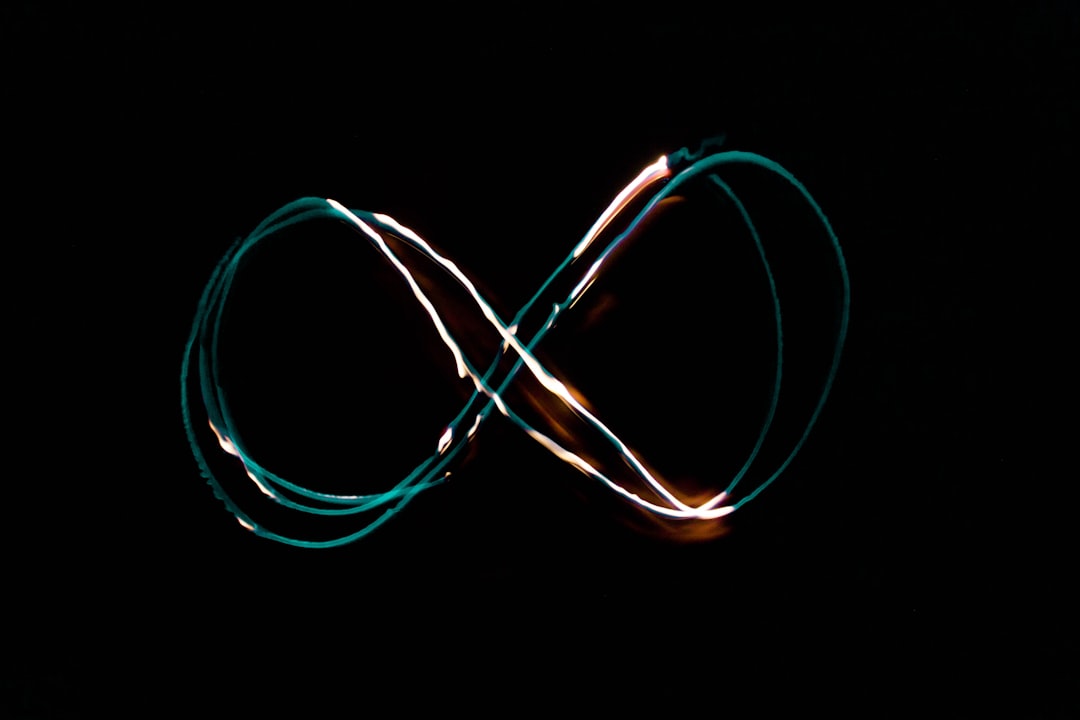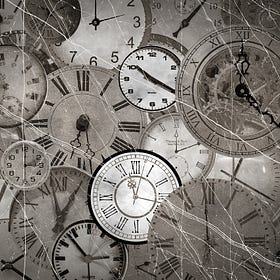If you enjoy my work, please consider clicking ❤️ or 🔄 on this post so even more people can discover it on Substack.Happy 2024!
This year I’m more committed than ever to exploring life’s Big Questions: Who am I, really? Why am I here? How can I know and embody my life’s true purpose?
To me these aren’t simply questions, they are THE questions. They are what have led me on a pathless path of Self discovery for 25+ years, and what motivate me to write, share, and create.
Along the way, I’ve become a constant beginner and student. I read, listen to, and capture ideas from everywhere—especially spirituality, science, and psychology, and curate these ideas in what I have come to call my Infinite Notebook, a virtual Second Brain I’ve developed over the years.
Often, I don’t know why something resonates with me. But, if it does, it goes in the Notebook—a turn of phrase here, a lyric there, a provocative sound bite that connects the two. It’s a bit like collecting a galaxy of individual dots from which constellations might eventually emerge.
All of my writing, including the essays I share on Substack, are the result of creatively studying and connecting these dots.
This year, I’m opening up my Infinite Notebook to you.
Today is the first stab at it.
My intention for this newsletter is to continue writing a couple deeper dive essays each month. In between those releases, I’ll share a couple Infinite Notebook entries, most of which will contain the raw material from which my longer pieces are built.
If you like quotes, idea sketches, and provocative questions to ponder, you’ll enjoy these posts. They’re meant to spark your own imagination, and I hope you find some gems you can apply to your own life.
-KSK
1. What is creativity?
Creativity isn’t a thing, but a way of seeing and being.
“Creativity is just connecting things. When you ask creative people how they did something, they feel a little guilty because they didn’t really do it, they just saw something. It seemed obvious to them after a while. [Many people] don’t have enough dots to connect, and they end up with very linear solutions without a broad perspective...”
Music producer Rick Rubin adds:
“Look for what you notice, but no one else sees.”
Notes to self:
Be curious. Reality is open-source.
Pay attention. Don’t just look, see.
The more dots you collect, the more connections become possible. An infinite number of constellations can be imagined from a galaxy of stars, but you can only do so much if you just have a few..
No one can see what I see. I have a unique view that only I have.
2. Bill Plotkin quote I’m pondering:
Death turns to me and asks,
“Who are you?
For what do you live?
What will you bring your people?”
Idea for focusing my intentions: Morning coffee with Death Challenge. Each morning for a week, I will journal my answers to these three questions.
3. Finite vs. Infinite Games
I recently came across a first edition of James P. Carse’s Finite and Infinite Games: A Vision of Life as Play and Possibility in a used bookstore.
There are so many gems in this book, and the lens through which he sees reality is in itself a life-changing notion. No doubt, I want to play infinite games.
In life, there are at least two kinds of games. One could be called finite, the other infinite. A finite game is played for the purpose of winning, an infinite game for the purpose of continuing the play.
Everyone is playing finite games, but not everyone knows they can play an infinite game.
Finite games begin and end; there are clear winners and losers. Infinite games do not end because there can be no end.
The rules of a finite game may not change; the rules of an infinite game must change.
Finite players play within boundaries; infinite players play with boundaries.
Finite players are serious; infinite players are playful.
Finite players win titles; infinite players have nothing but their names.
Finite players seeks to bend, break, or master the rules of the game; infinite players create completely new games.
Finite games are based in probabilities and scarcity; infinite games are, by nature, based in possibilities and abundance.
Finite players seek to recreate the Known, but in better ways; infinite players seek to step into the Unknown.
4. ICYMI: A Brief History of Tomorrow
Last week, I shared a different method I use instead of goal-setting. I call it “story-setting”. If you’re unclear on where you want to go this year or how to get there, I encourage you to try this method for yourself.
A Brief History of Tomorrow
Much love to you all.
Kevin




Your "infinite notebook" idea is great. Love your description of it. Sounds like a commonplace book on steroids. My own decades-long journal often served a similar purpose.
Are you familiar with the idea of a "spark file," as laid out by Steven Johnson in a semi-classic 2012 essay? (You can find it at https://medium.com/the-writers-room/the-spark-file-8d6e7df7ae58.). It's essentially the same thing, except Johnson describes his spark file not exactly as a place where he records all the quotes and ideas that resonate powerfully with him as he comes across them, but as a place where he records his own ideas or hunches: "[F]or the past eight years or so I've been maintaining a single document where I keep all my hunches: ideas for articles, speeches, software features, startups, ways of framing a chapter I know I'm going to write, even whole books. I now keep it as a Google document so I can update it from wherever I happen to be. There's no organizing principle to it, no taxonomy--just a chronological list of semi-random ideas that I've managed to capture before I forgot them. I call it the spark file."
Your description of an infinite notebook overlaps strongly with Johnson's description of how he uses his spark file. Just like you describe the magic of finding new connections suggest themselves among your recorded ideas and quotations upon subsequent revisits to the notebook, Johnson says of his spark file, "the key habit that I've tried to cultivate is this: every three or four months, I go back and re-read the entire spark file. And it's not an inconsequential document: it's almost fifty pages of hunches at this point, the length of several book chapters. But what happens when I re-read the document that I end up seeing new connections that hadn't occurred to me the first (or fifth) time around." He says the most interesting part of this practice "is the feeling of reading through your own words describing new ideas as they are occurring to you for the first time. In a funny way, it feels a bit like you are brainstorming with past versions of yourself. You see your past self groping for an idea that now seems completely obvious five years later. Or, even better, you're reminded of an idea that seems suddenly relevant to a new project you've just started thinking about."
Thanks for this. Would love to read how you apply infinite games in your life.